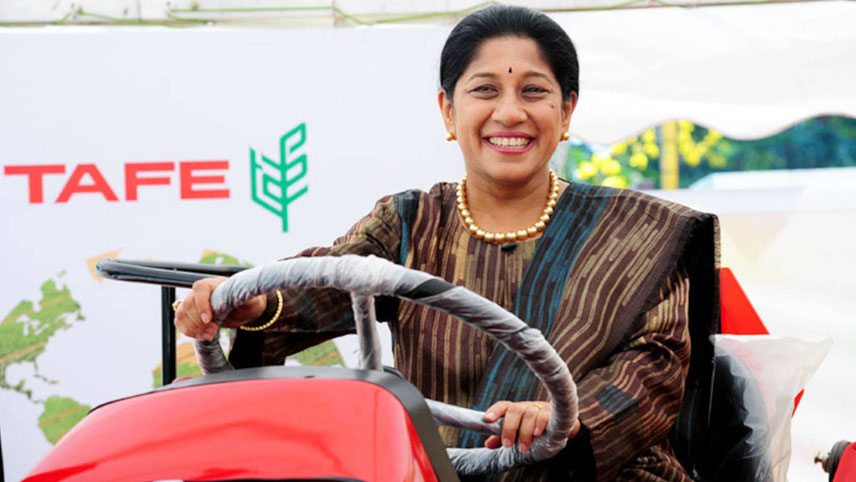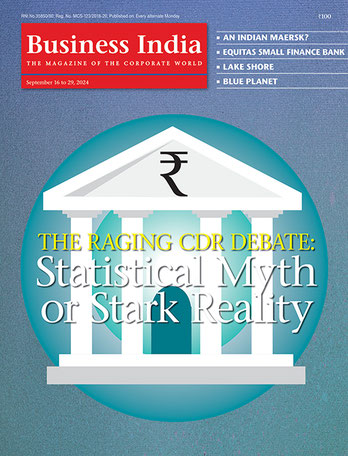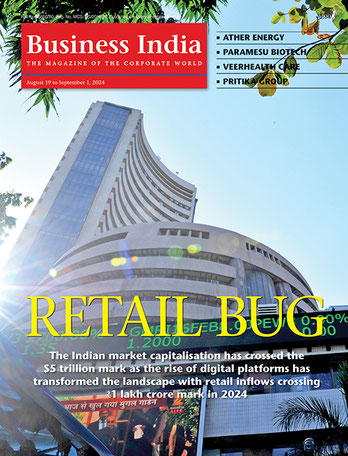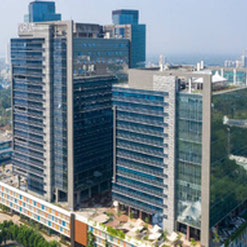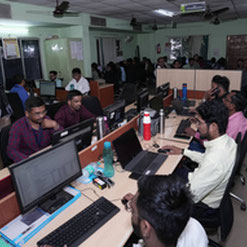-
When it comes to hard physical assets which the company has put together so far in the agrarian markets, there are some impressive numbers
“On a low-key basis, today, we can claim to have most of the components which will define the Indian agriculture business going ahead, in place. At the first sign of demand surge in any specific services under our portfolio, we can scale it up. And this is a major cushion as we tend to transform our business,” he adds.
NCML’s basic grain
Considered one of the leading players in the post-harvest agri supply chain management NCML has seen interesting twists and turns since its formation in 2004. The ownership and management control of the firm has changed hands thrice in just 12 years after its formation. Its origin was initiated by the leading commodity exchange NCDEX. And along with it some public sector banks had also supported the venture. “They had supported us because they were looking for a collateral manager. In the initial years, the company was working more like a PSU or semi-government entity taking care of the interest of public sector banks as collateral manager for their lending against the crop,” says Chaudhry.
In the initial years, accumulating foodgrain storage strength (for the collateral management and warehouse receipt business) was the topmost priority and the company, gradually, had shown consistent growth on this parameter during the first decade of its existence. Many warehouses were created for the storage of grains to be delivered on exchange. Considering its growing footprint, IFC and Rabo Equity, with a combined stake of 70 per cent got on to the driving seat around the end of the last decade (IFFCO also had a sizeable stake). In 2015, Fairfax, which had expressed its intentions of picking up the management control of performing firms of the future across various sectors in India, picked up NCML by buying 74 per cent stake for around Rs800 crore. It later bought an additional 15 per cent with a capital infusion of another Rs160 crore.
Some of the leading banks, like the PNB and Corporation Bank, still hold a minority stake in the company, which is probably reflective of its collateral management vertical remaining an important pillar. And when it comes to hard physical assets which the company has put together so far in the agrarian markets, there are some impressive numbers. The company claims to have an expansive network of over 700 warehousing units spread across 15 states. “We basically have three categories of warehouses which, in a cumulative sense, comprise 1.9 million tonnes of storage capacity. Our own warehouses have a capacity of around 6.5 lakh tonnes. An additional half-a-million-tonne capacity is contributed by units taken on lease. And the remaining comes through the franchise model,” says Unupom Kausik, President, NCML. The states where these units exist are: Andhra Pradesh, Bihar, Delhi, Gujarat, Haryana, Karnataka, Kerala, Madhya Pradesh, Maharashtra, Odisha, Punjab, Rajasthan, Tamil Nadu, Telangana, Uttar Pradesh and Uttarakhand. “Barring the north-eastern states and Jammu & Kashmir, our storage units are present in most other important parts of the country,” Kausik adds.
-
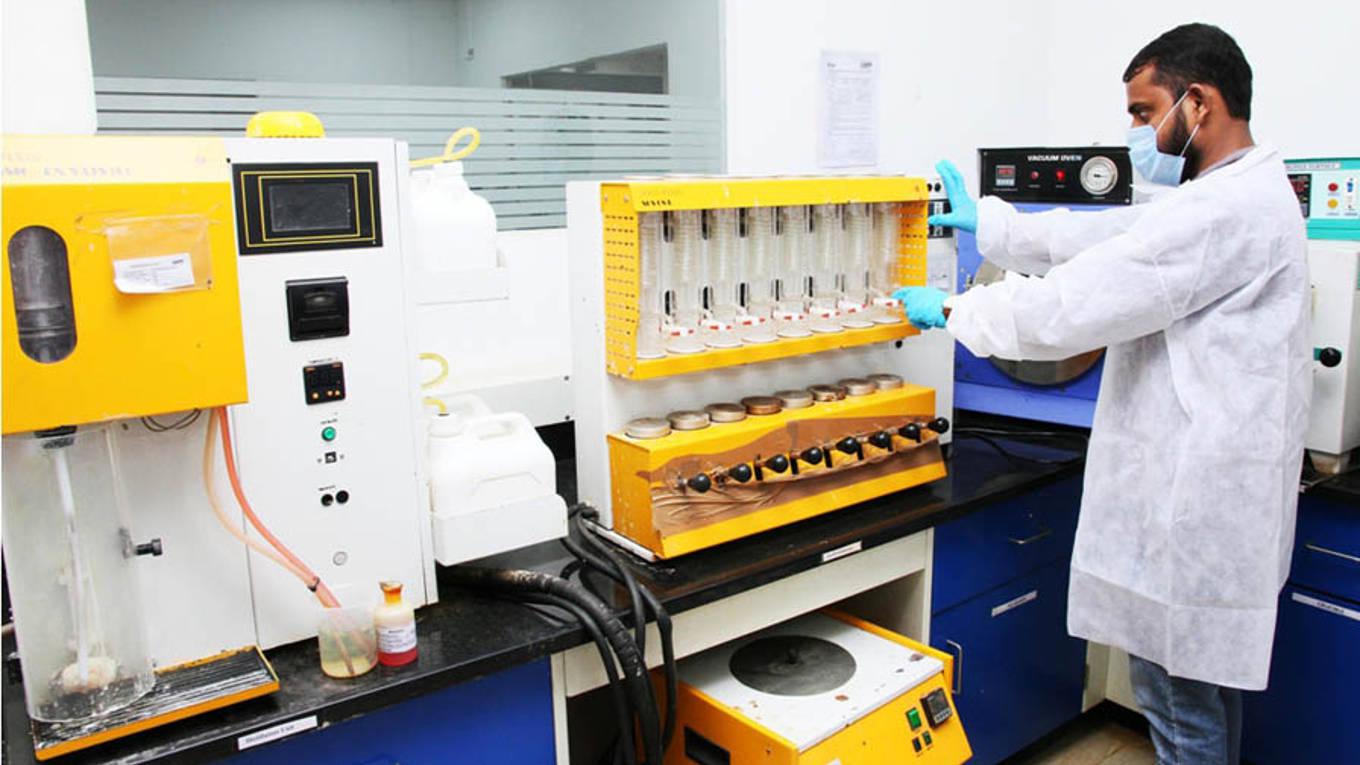
NCML offers services like testing crops and issuing weather advisories
“In the space in which a company like NCML is operating, you will not grow big time on the basis of some basic storage functions. With the change in the operating environment and a major push to the agriculture sector, your future growth will be determined by how effective you add new sets of services,” observes Pawanexh Kohli, former CEO, National Centre for Cold Chain Development (NCCD) and a renowned agri-logistics expert. And this is the broader direction NCML claims to have taken. While storage remains the fulcrum of NCML’s operations, it has also gradually added some new components which are expected to play a pivotal role in the 2.0 transformation exercise, giving strength to its offerings both on a standalone as well as integrated basis. These include: testing labs (currently in 12 states), weather stations (more than 3,200 units), crop price advisory services, supply chain services on an end-to-end basis, financing business (NFIN), etc. The company has also initiated an online marketplace called MktYard which acts as the online intermediary between the buyers and sellers of most of the major commodities. “Somewhere, we are also trying to have a positioning like Ola or Uber in our line of business, getting in buyers and sellers under one roof,” says Chaudhry. And it is the combination of these elements which NCML is hoping to harness optimally to emerge in a new avatar.
The game plan
Fairfax Holdings has controlling stakes in some of the major firms in India which include Thomas Cook India, Bengaluru International Airport, Catholic Syrian Bank, etc. It also has a sizeable stake in Sanmar Chemicals. And the names in the list clearly point out that the Canadian investment firm is keen to align with businesses which are already large in scale or are a potential leader in their space in India. “What Fairfax is trying to do with NCML is something they have successfully accomplished with AFGRI in South Africa, which is the leading storage company operating in several countries in the continent, offering multiple set of services,” Kausik says.
As marketmen point out, the recent set of measures announced to unlock the potential in the agri-business space also includes doing away with the stringent positioning of APMCs or designated mandis. “One of the most crucial announcements was the proposed amendments to the Essential Commodities Act (ECA) and the Agricultural Produce Marketing Committee (APMC) Act, which now paves the way for private entities to set up their own markets. As per the proposals, the new unified trading licence will allow traders to buy directly from farmers,” says Sandeep Sabharwal, group CEO of SLCM (Sohan Lal Commodities Management) which is a well-known private entity in the commodities logistics management space. “The warehouses that we operate will become amalgamation and distribution centres rather than just an inventory management location, thereby exponentially increasing revenues tied up with collateral management, collateral financing, and logistics operations,” he predicts.
And turning its huge warehousing strength in private mandis (at strategic locations) to those which would offer not just storage facilities but also other necessary services of the value chain like quality testing, packaging, etc, are at the top of the mind of NCML top brass now. “Our warehouses becoming vibrant marketplaces in their own right with multiple activities is one part of our objective. The other critical pursuit for us would be to graduate from dealing in basic food grains to food products and we have begun talking to the leading FMCG firms for these services,” says Chaudhry. Press him further as to how this mechanism is supposed to unfold and he offers a detailed reply. “We will help these firms in procurement and storage and we can issue them weather and price advisories. We will test the crop, tie up with processors, packet the end product and leverage our transport partners’ strength for delivery at CFA (carrying and forwarding agent) points,” he underlines.
-

Vasdev: eyeing a three-fold jump in revenue
According to Kausik, the company, in strategic terms, is now aiming to occupy the middle stream of the agri-operational value chain. “The major success stories linked with the agriculture sector in India like Operation Flood and others have one thing in common. They all have well defined sets of producers, aggregators and distributors. We want to become a large-scale aggregator for many commodities; a more formidable player in the middle stream of the value chain,” says he.
Action to make a difference
NCML’s new transformation mantra rooted in active participation in the facelift of India’s agri-infrastructure and processes is certainly not just a boardroom idea. Its large-scale involvement with Food Corporation of India (FCI) in creating modern silo structure at 13 locations in the country (adjacent to railway lines or sidings) is probably a pointer to its commitment to be in the vanguard of agri-infra changes. “Food Corporation of India has been engaging with private entities including NCML in creating safe, scientific and secure bulk storage structures along railway sidings, to augment the storage gap. This will go a long way in helping farmers to sell their produce, preserve the quality of the produce and ensure faster delivery of food grains to consumption centres,” says DV Prasad, chairman & managing director, Food Corporation of India. NCML is creating these projects at Bhattu and Sonipat (Haryana); Chhehreatta, Batala and Jalalabad (Punjab); Basti, Faizabad and Deoria (UP) and Madhepura, Motihari and Saran in Bihar. In addition, it is also creating two standalone rice centric silo projects at Buxar and Kaimur in Bihar.
The company had bagged the initial bunch of silo projects in 2016 after an open bidding and their roll-out date is now quite close. NCML is executing these projects on a design, build, finance, own and operate (DBFOO) basis. “NCML is investing Rs1,100 crore in the silo project. We are expecting the first project at two locations in Haryana becoming operational before the end of the current fiscal while the remaining will go live by the end of 2022,” Anuj Vasdev, group chief financial officer, NCML, says.
But NCML’s fling with silo is not only restricted to creating modern storage space for food grains. Chaudhry points at the larger play. “At most of the locations we are acquiring additional land because we want these sites to become marketplaces where other private players can come and set their milling or processing plants or trading units,” he says. The total land parcel for these silo and business hubs which NCML is accumulating will be 240 acres (about 200 acres have already been acquired). “When these silos were actually planned and this was being discussed within government circles, the larger idea was to create medium capacity logistics parks around these vertical units, facilitating a complete set of activities. You normally need 10 to 11 acres at a site to create a silo structure. By taking additional land, NCML is looking at creating those logistics parks which is the correct strategy,” says Vinod Asthana, former MD, Central Railside Warehousing Company (CRWC).
-
On a pilot basis in Kota and Rajasthan, NCML launched what it called ‘Surakshit mandi’ to help farmers sell directly at their warehouses after the green signal came from the Union government
In recent months, the company has also turned heads by exhibiting its ability to leverage its grassroots reach as well as technological backing in creating a viable solution in a desperate time defined by frequent lockdowns due to Covid-19. On a pilot basis in Kota and Rajasthan, NCML launched what it called ‘Surakshit mandi’ to help farmers sell directly at their warehouses after the green signal came from the union government. “We used local intermediaries to spread the word among farmers. We created an electronic queue at specific times, managing social distancing norms for the direct purchase. The material came in, it was tested by us and put up for auction on our e-auction platform. The response was good and indicates the emergence of the private mandi regime in the country. This is what we intend to ultimately do at other locations,” Chaudhry underlines.
Stress signs
But even as NCML is now seeking to re-invent itself (becoming a one-stop solution shop for players in the agri and food space), the recent performance trends by the company do point to some troubled signs. The company has displayed an erratic income growth pattern and its traditional stronghold, the collateral management business, has shown frequent fluctuations even as the agriculture sector has shown steady growth in recent years. While it is common knowledge that commodities firms do not necessarily have a static growth pattern as seen in other businesses in normal times owing to factors like demand, supply and modest to severe fluctuation in price patterns, NCML’s performance last fiscal shows a drastic drop in gross revenue to the extent of over Rs400 crore (see chart – Revenue Growth).
Flip through its annual report 2019-20 and there are clear indications of performance pressure. For instance, the revenue from its supply chain services vertical fell by 37 per cent to Rs682 crore in 2019-20 as against over Rs1,000 crore in the previous fiscal. And in its collateral management services, the revenue drop was as high as 50 per cent. The collateral management business, as Chaudhry admits, has been affected considerably not only in the last year but since the implementation of demonetisation. “Post demonetisation, the collateral management business has been seriously hit. When people ran out of money, they went after stocks. We were only gatekeepers,” he says while citing the significant drop in the asset under management (AUM) figure of the collateral management business which has come down to Rs4,500 crore from the high of around Rs20,000 crore in the pre-demonetisation era. Amith Agarwal, executive director of Star Agri, a prominent private commodity player which is also in collateral management, speaks no differently. “There has been a decline in AUM of all players who have been in agri-collateral management in the last two-three years. Our peak at one time was close to Rs15,000 crore and it is now just one-fourth of that,” he says.
-
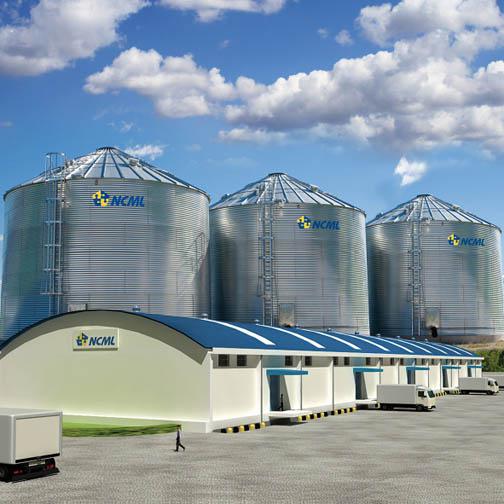
NCML is investing Rs1,100 crore in the silo project
However, there are stress signals on other fronts too. For instance, the loan book of its financing business has sshrunk following the recent NBFC crisis. Furthermore, the transaction on its marketplace MktYard, too hasn’t shown any significant momentum ( Rs1,200 crore of transaction in Gross Merchandise Value Terms last year as against Rs2,600 crore the year before) building vis-à-vis its competitors like AgriBazaar which is claiming over Rs2,000 crore of transaction happening every month now. Even the required land parcel for all silo projects NCML is executing has not been acquired – 40 acres is still remaining and the project has been delayed by a year.
Siraj Chaudhry admits that these weak spots are a concern. But in the same breath, he emphasises that the broader plans for NCML 2.0 encompass measures to deal with the issues at hand. For instance, the company is getting ready to dilute its collateral business and will be undertaking it only in the warehouse units owned by it. It may even streamline its warehouse units going ahead, leaving some of the less productive units. On the financing business side, it would primarily focus on lending to those involved in agri-supply chain operations. And its marketplace operations are likely to be bolstered with the addition of services by dedicated and trusted transport and logistics partners. “We have initiated a serious churning process and it will take some time but we are determined to make the company an agile player in the new operative environment which entails the unlocking of huge potential in the Indian agriculture and related businesses. In the next four-five years, a new NCML will be visible to everyone,” Siraj assures, while adding that his present stint is more challenging than the one with Cargill India since, apart from other things, NCML has to be also turned into an entity with better brand value in the B2B space.
“As per our medium run targets, we are eying a three-fold jump in our revenue in the next four-five years,” says CFO Vasdev when asked to cite some hard numbers the company is eyeing with its broader reinvention programme. To some, this may sound quite ambitious but incidentally late last year, credit rating agency ICRA while revising NCML’s commercial paper rating, had cited the backing of Fairfax as its strong point, making the company an entity to be watched in the future. “Fairfax Financial Holdings Group (FFH), has demonstrated strong support towards NCML through regular equity infusions to meet its funding requirements. The rating also factors in NCML’s reputed and diversified client base and its presence across multiple verticals within the commodity business, such as procurement, storage, preservation, testing, collateral management, financing against pledged commodities, weather intelligence and crop intelligence,” the ICRA report had maintained. Simply put, if there are odds, favourable points too are readily visible for NCML.



















